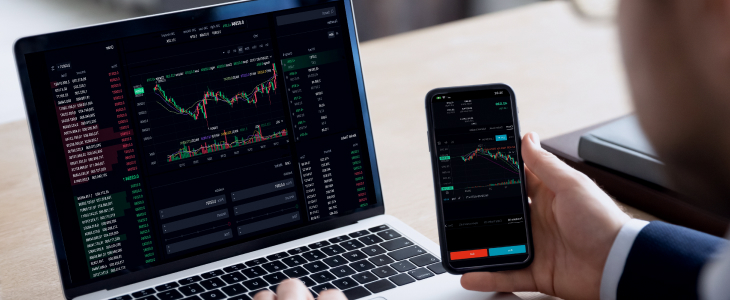
The Ultimate Guide to Forex Trading Business
Forex trading, or foreign exchange trading, is the global market where currencies are bought and sold. It is one of the largest financial markets in the world, with an average daily trading volume exceeding $6 trillion. As a forex trader, you have the opportunity to seize profits from fluctuations in currency values. Many individuals and institutions participate in this market because of its high liquidity, accessibility, and leverage. In this article, we will explore the fundamentals of the forex trading business, including strategies, tools, and tips to enhance your trading skills. If you’re looking to understand the landscape of currency trading, consider using reliable resources such as forex trading business Indian Trading Platforms.
Understanding the Forex Market
The forex market operates 24 hours a day, five days a week, allowing traders from all around the globe to engage in currency trading at any time. Unlike stock markets, which have specific opening and closing times, the forex market is decentralized, meaning trades are conducted over-the-counter (OTC) rather than on a centralized exchange. This structure allows for greater flexibility and access.
Currency Pairs
In forex trading, currencies are traded in pairs. Each pair consists of a base currency and a quote currency. For example, in the EUR/USD pair, the Euro is the base currency, and the US Dollar is the quote currency. Traders speculate on the relative value of one currency compared to another. If the Euro strengthens against the Dollar, a trader would aim to profit from this movement.
Types of Forex Traders
There are several types of traders in the forex market, each with different approaches and timeframes:
- Day Traders: These traders open and close their positions within the same day to capitalize on short-term price movements.
- Swing Traders: Swing traders hold positions for several days to capture potential price swings.
- Position Traders: These traders take long-term positions based on fundamental analysis and hold for weeks, months, or even years.
- Scalpers: Scalpers make numerous trades within short time frames, aiming to profit from small price changes.
Essential Forex Trading Strategies
Successful forex trading involves the application of effective strategies. Here are some popular strategies that traders use:
Technical Analysis

Technical analysis involves analyzing price charts and using indicators to forecast future price movements. Traders often rely on tools like Moving Averages, Relative Strength Index (RSI), and Fibonacci retracement levels. Understanding these indicators can help traders make informed decisions based on historical price action.
Fundamental Analysis
Fundamental analysis focuses on economic indicators to gauge currency value. Traders analyze data such as interest rates, GDP, employment figures, and geopolitical events. For instance, if a country’s economy is growing, its currency is likely to strengthen.
Risk Management
Effective risk management is crucial for long-term success in forex trading. Traders should determine how much capital they are willing to risk on each trade and implement stop-loss orders to limit potential losses. A common rule is to risk no more than 1-2% of your trading capital on a single trade.
The Role of Brokers in Forex Trading
Forex brokers serve as intermediaries between traders and the interbank forex market. Choosing a reliable forex broker is vital for your trading success. Here are some aspects to consider when selecting a broker:
- Regulation: Ensure the broker is regulated by a reputable financial authority to safeguard your funds.
- Trading Platforms: Choose a broker that offers a user-friendly trading platform with essential tools and resources.
- Spreads and Fees: Compare the spreads (the difference between the buy and sell price) and any additional fees that may apply.
- Customer Support: A responsive customer support team can help you resolve issues quickly.
Tools for Successful Forex Trading
In addition to strategies and brokers, utilizing trading tools can enhance your performance. Here are some essential tools:
- Charting Software: Advanced charting tools allow traders to analyze price movements and apply technical indicators.
- News Feeds: Real-time news feeds can help traders stay informed about economic events that may impact currency prices.
- Economic Calendars: Economic calendars keep traders updated on scheduled economic releases and events that influence the forex market.
- Trading Journals: Maintaining a trading journal allows traders to reflect on their performance, identify patterns, and improve their strategies.
Conclusion
The forex trading business is an exciting yet challenging arena that requires dedication, education, and strategic planning. By understanding the fundamentals of the market, applying effective trading strategies, leveraging the right tools, and managing risks appropriately, traders can navigate this dynamic environment more effectively. Whether you are just starting or looking to refine your skills, continuous learning and practice are essential for achieving success in forex trading.